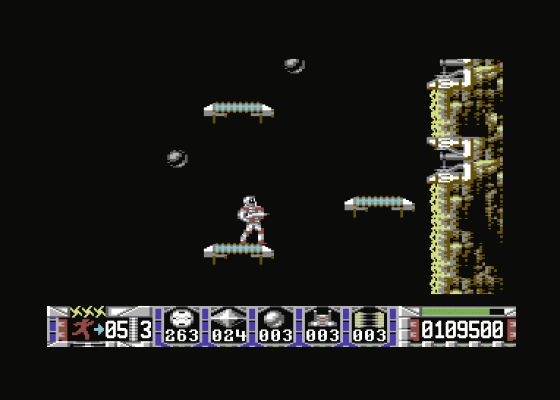
Micro Mart
 17th December 2009
17th December 2009
Categories: Retro Gaming
Author: Shaun Bebbington
Published in Micro Mart #1086
This week, Shaun continues in his quest to answer the one question that may have crossed your mind...
Retro Mart: Why Retro? Part 2
Last week, I spoke about how using old technologies is a personal thing, and gave examples of how those 8-bit home computers can be used to carry out the day-to-day tasks that more modern PCs do. I continued by pointing out how a machine such as a Sinclair ZX Spectrum, for example, offers an interesting challenge to a programmer.
This has led to some very weird and wonderful games since its commercial decline. And as I felt that there wasn't enough space for me to answer the question "Why retro?" in one single page, I'll continue here and now.
Like a Windows-based PC, there are options to upgrade your old home computers to get more performance, but whereas a modern machine will do more and more, an enhanced Commodore, Amstrad, Atari or Sinclair will simply do more of the same, whether it's increasing the Speccy's colour palette, or getting some extra processing grunt out of a Commodore 64, or increasing the available memory on an Atari XE/XL.
If I take each point in order, the forthcoming ULA+ on the Spectrum, while increasing the available palette to 256 colours to include warmer and more subtle tones (and giving the possibility of typically 64 on a screen), there is still the colour attribute clash to contend with.
Essentially, then, the fundamental principles that make it what it is hasn't changed. Had the decision been made to add hardware sprites, then it would basically have been turned it into an MSX. It's the same, in principle, if you add more processor power to a C64, in that there are still some limitations with to contend with (no more that eight hardware sprites on the same Y-position (or line) for instance, although you can do more with it. And increasing the RAM of an Atari 8-bit will simply increase the space for more data to be stored and recalled. This again can make life a little easier for users of such technologies while retaining (one way or another) complete backwards compatibility and not turning it into something else.
Some people have come to the conclusion that I'm somehow anti-Microsoft, or anti-modern technology. This isn't true: I use several very useful Microsoft packages on a regular basis. For instance, Word Pad is my word processor of choice, because it does everything that I need it to without any fuss. Notepad is good for writing HTML documents, or quickly writing down ideas for a project of some description, and while I prefer the image manipulation package GIMP, I can get by with Paint for doing what I need to with screen grabs. And I'm quite aware that Commodore BASIC is an old version of MS BASIC, first appearing on the PET machines way back in 1977.
However, if you took away the Windows-based PCs, I would mostly be able to live without them. My C128 can connect to a modern network through an Ethernet connection, I can write my column on it, I can file-share with other machines (yes, I admit, this includes a Windows-based PC), and can print in full colour with my laser printer, all from a 1980s machine with a little help along the way.
In that, I've not forgotten about the many hundreds of good games from the classics such as Thalamus's Delta and Rainbow Arts' Turrican to more recent efforts such as Protovision's Bomb Mania and Advanced Space Battle. The only thing it can't do and that I would miss is the ability to manipulate JPEG images and such like (although I can print them thanks to the wonders of Adobe Post Script). So, for me it's about making things fun and having a choice. It is mostly thanks to the continued hard work of modern-day programmers, hardware hackers and manufacturers, and developers that I still have a choice.
All of this that I mentioned above and last week is why I choose to use my outdated machines in today's multi-tasking, multimedia and multi-crashing world. See you next week.
This article was converted to a web page from the following pages of Micro Mart #1086.







